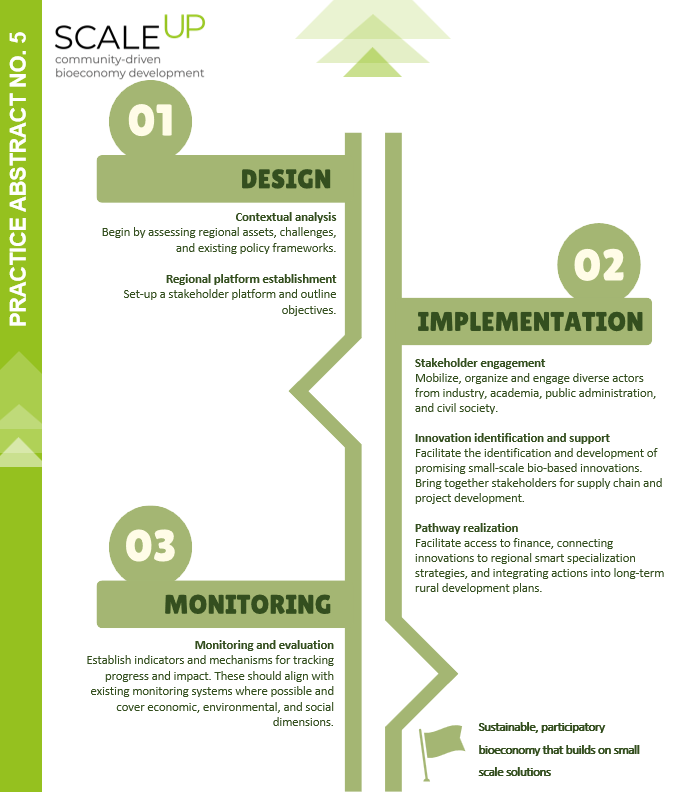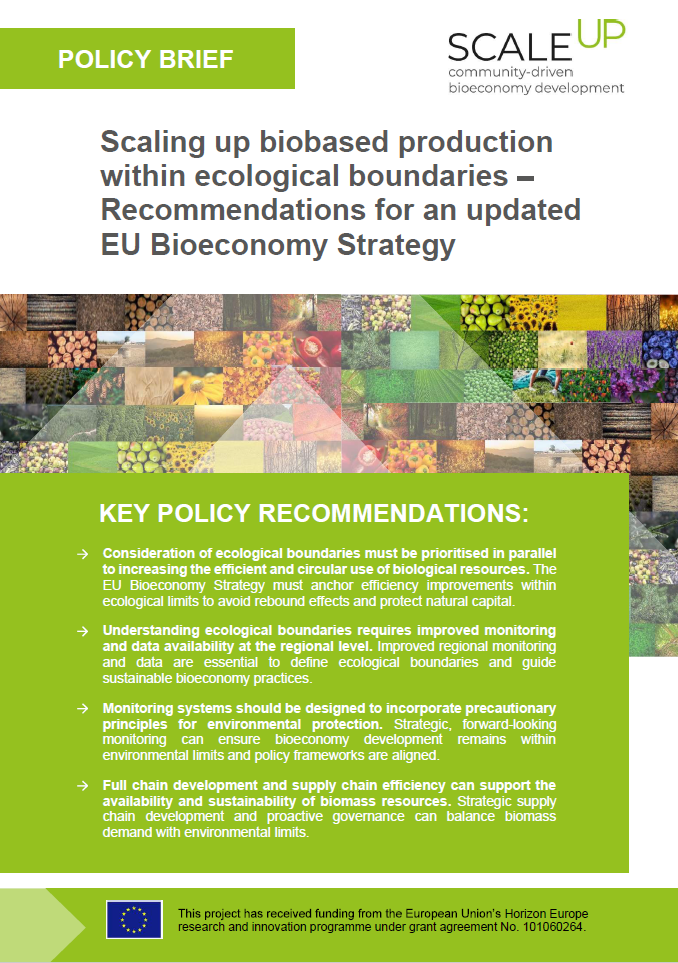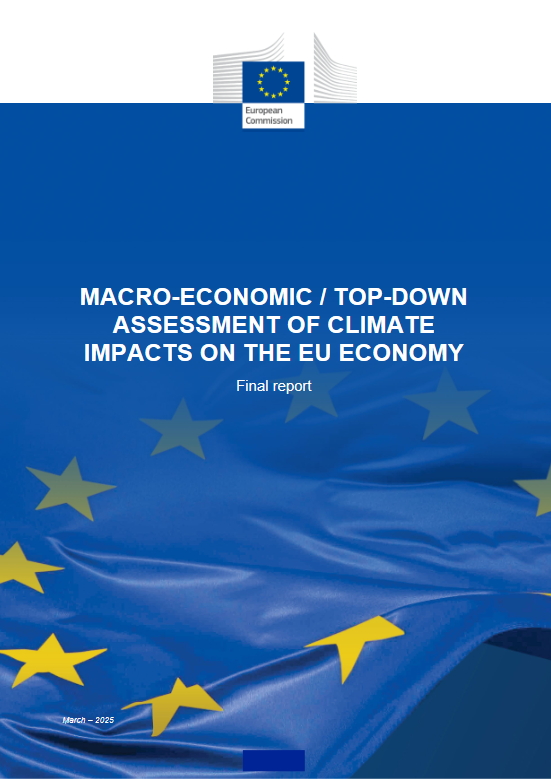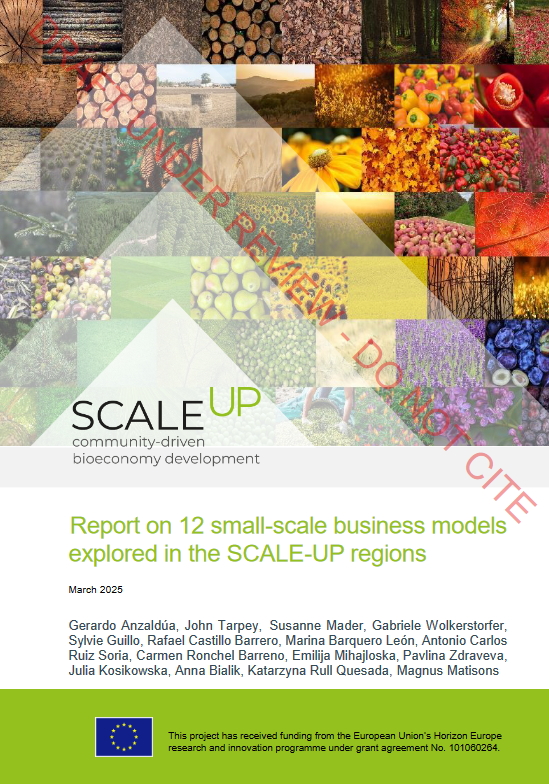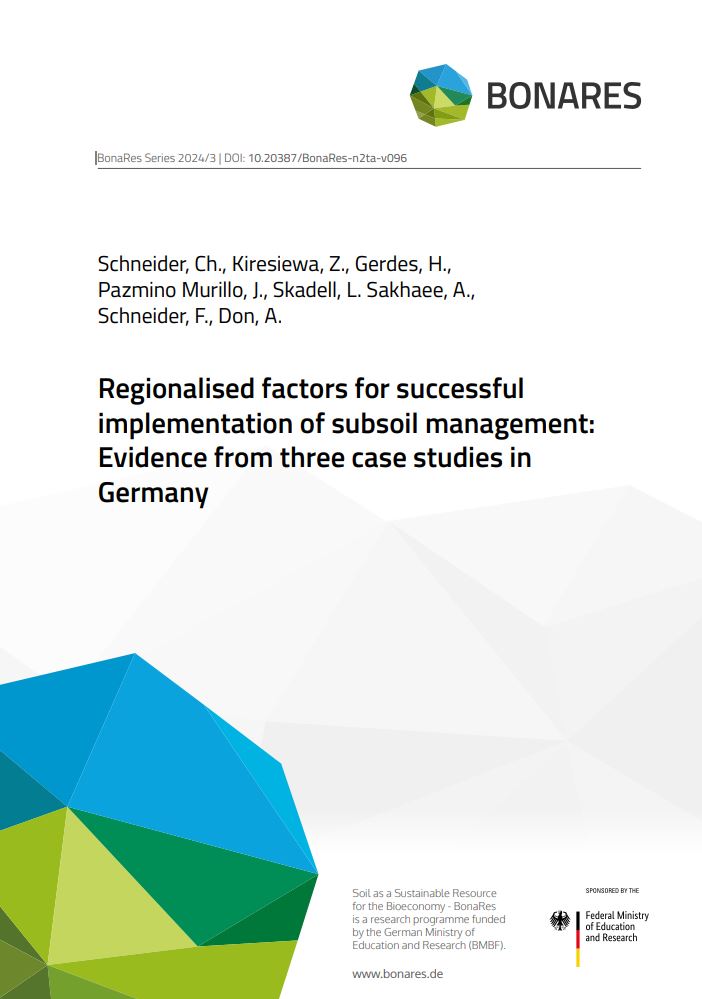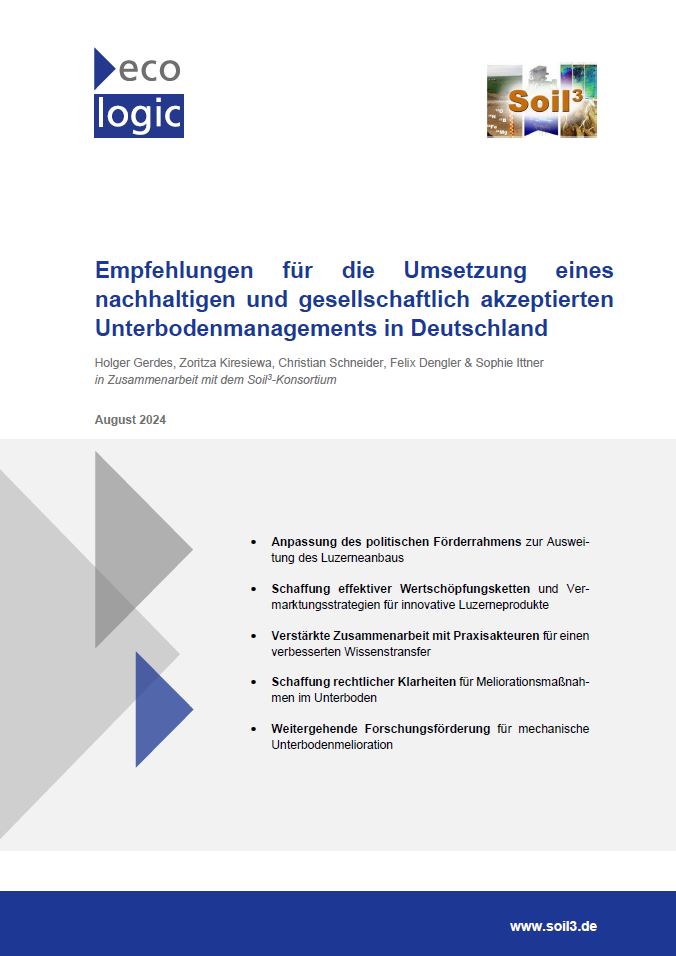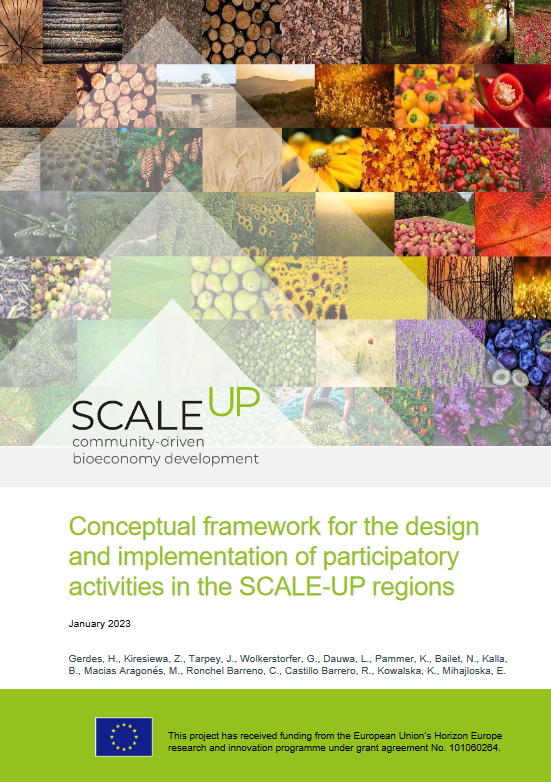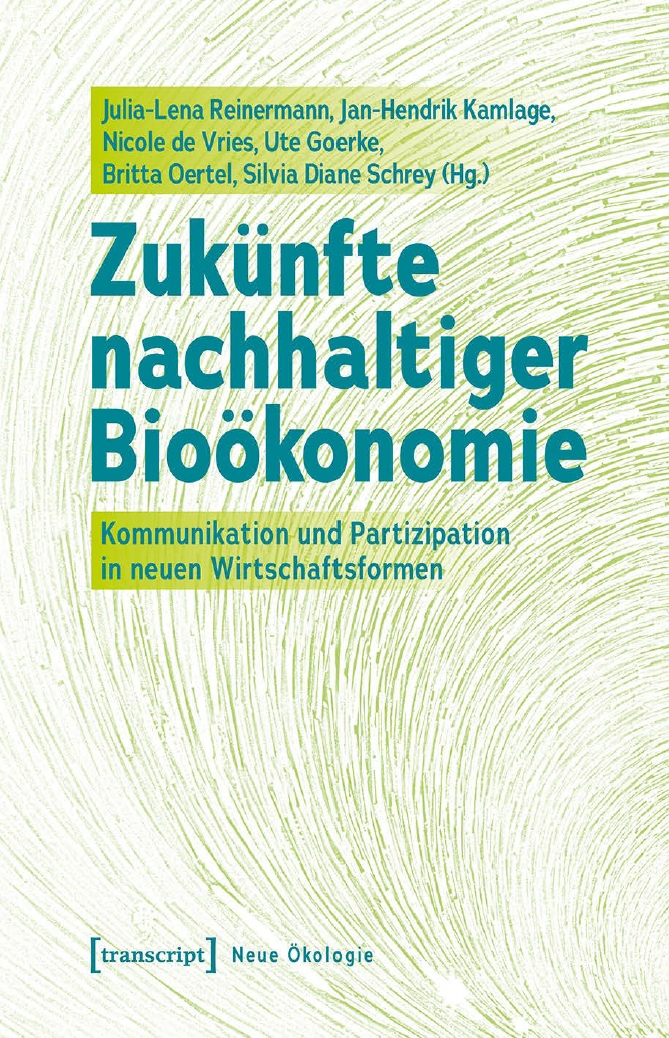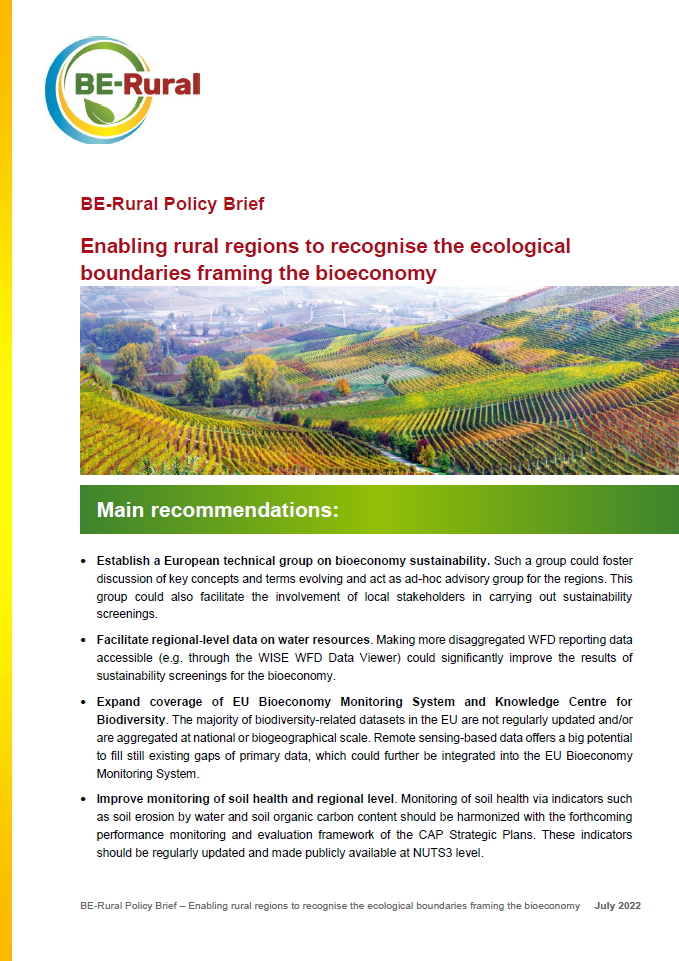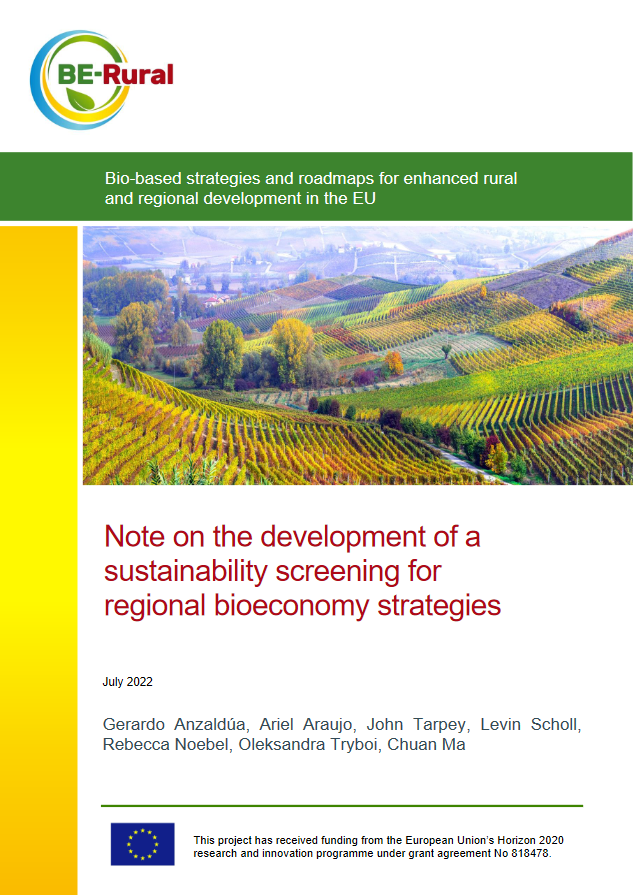Publication:Report
Publication:Policy Brief
From Strategy to Action for a Regional, Participatory, and Sustainable EU Bioeconomy
Evidence and recommendations from RuralBioUp, SCALE-UP, BioRural, and MainstreamBIO
Year
Read morePublication:Report
Publication:Policy Brief
Scaling up Biobased Production within Ecological Boundaries
Recommendations for an updated EU Bioeconomy Strategy
Year
Read morePublication:Policy Brief
Enabling Change from the Ground up
Policy recommendations to foster social innovation in Europe
Year
Read morePublication:Report
Publication:Report
Publication:Report
Publication:Report
Regionalised Factors for Successful Implementation of Subsoil Management
Evidence from three case studies in Germany
Year
Read morePublication:Policy Brief
Publication:Report
Publication:Report
Publication:Book Section
Publication:Policy Brief
Publication:Report
Note on the Development of a Sustainability Screening for Regional Bioeconomy Strategies
Deliverable 5.4 H2020 Research project BE-Rural
Year
Read morePublication:Report
The Impact of Subsoil Management on the Delivery of Ecosystem Services
An economic valuation for Germany
Year
Read morePublication:Policy Brief
Publication:Report

